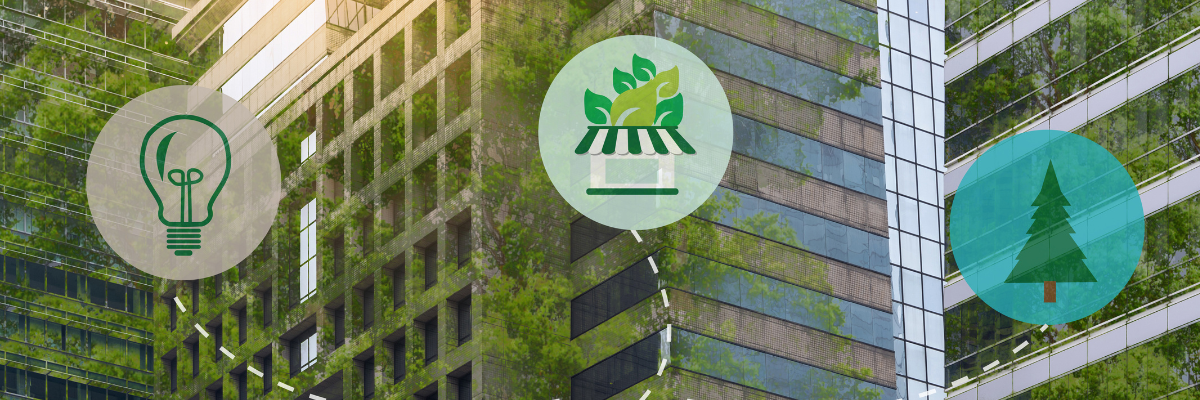
There’s a new factor to consider when buying a home or calculating the value of your current one: energy efficiency. Basically, it involves measuring the impact that the design of your home has on energy costs and apparent temperature. An efficient building saves energy while keeping your home warm or cool. On the other hand, sub-optimal buildings lead to greater energy costs.
This means that less efficient homes cost more over the long term.
Índice de contenidos
What is energy efficiency?
Energy efficiency is a way of optimising energy use to save energy without compromising comfort. There are various ways to achieve this, but many are based on adapting energy consumption to actual use. At one level you can do this by turning off devices when not in use, but you can do so much more. Similarly, some appliances are more efficient than others, depending on how much power they use. A sticker on the appliance will tell you their energy rating.
It’s also important to understand how the layout of your home plays a role. Something as simple as knowing when to lower the blinds or open the windows can affect your home’s average temperature or humidity. That’s why governments promote responsible manufacturing as well as good consumer behaviour.
How do you calculate energy efficiency?
At first glance, it may seem a complex system to measure because it considers factors that are insignificant on a day-to-day basis but add up over the long term. International standards such as ISO 50001 and the IPMVP are important resources for estimating energy efficiency. Council regulations also apply at the local level. These often focus on recommendations and good practices for companies.
Private citizens sometimes need the help of an independent expert who specialises in the field. These experts collect data for a certain period and then cross-match it to qualitative and quantitative information.
Not only is it possible to calculate and improve the energy efficiency of a single home but there are also options for residential blocks. More and more communities of owners are also looking to measure efficiency and make progress in this area.
The benefits of energy upgrades
- Energy cost savings. Buildings that cut your electricity and water use make your bills cheaper, letting you direct these savings elsewhere. The financial aspect is very important, especially against a backdrop of unstable energy prices. The best way of cutting your costs is by optimising your home.
- Less environmental impact. The less energy we use, the fewer fossil fuels are burnt, sending less CO2 into the atmosphere.
- Creating sustainable employment.
- Less dependence on foreign energy sources.
- Less energy poverty nationwide, along with increased production and economic activity, consolidating economic growth.
- Enables the incorporation of advanced technologies into homes and buildings.
Upgrading the energy efficiency of a building increases its value by 25%
An energy efficiency upgrade is not an expense but a self-funded investment that returns profits in terms of cost savings and higher property values. The increase in value for prestige homes is 65%, according to Spanish appraisal company Tinsa.
Increasing your home’s value means improving its energy rating and this is only possible with a renovation.
Examples of things that can be done as part of a renovation include upgrading the heating, water and electricity systems to improve insulation and sun protection, improving the carpentry and the glazing, and sealing any leaks and gaps.
A number of other techniques can be put into practice inside the home. One involves paying attention to airflows and the way light hits the home. As the day progresses, you can track light and air trajectories and how they contribute to the inside temperature. This lets you measure whether improvements to the way the home channels light and air can be converted into savings and energy for heating or cooling. A simple architectural study can highlight all the money an inefficient building costs each year.
For heating water, we recommend condensing water heaters. These systems are highly efficient and quickly pay for themselves, even with a higher initial investment. There are also a number of different devices you can install in the bathroom to cut water usage. These practices can also be applied to communal areas and swimming pools in communities of owners.
Assistance for energy efficiency upgrades to buildings
The idea is that any building can benefit from renovation and an energy efficiency upgrade. As a result, homes and communal areas will together and separately use less energy and save money. The building also becomes a more sustainable space, attracting a certain type of environmentally aware person.
There are a number of grants available for building upgrades. This helps people upgrade their buildings without having to spend a lot of money. The NextGenerationEU programme covers a wide range of sectors and subsidy types accessible with the proper documentation.